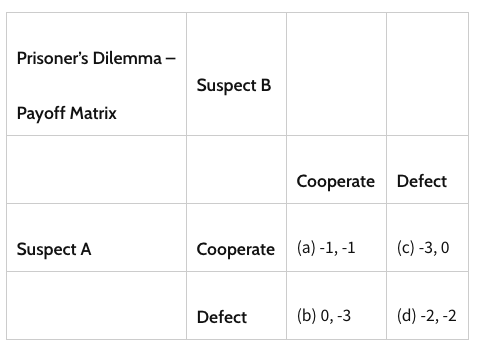I try to write and post by Friday but this topic had a lot of angles and research involved so I thought I’d take the weekend. Here we goooo.

Collabo
Earlier this week, I was on a call with a group of black founders thinking of collaborating in a major way. (More details to come) During the meeting, one of the founders said something that I’d never heard before. “ As we work together, we have to understand that many of us have “collaboration trauma” and we need to be cognizant of that as we find new ways to collaborate.”
After the meeting, I went down a rabbit hole trying to figure out if there was any information out there on collaboration trauma and I used my google-fu to find research or articles mentioning collaboration trauma. I couldn’t find anything significantly substantial.
Taking a step back, I walked through my experiences with collaboration to better understand what they meant….Some background for those who still wonder what I do for a living.
- I work at Kohactive as a product manager. I help companies build software products for internal and external usage. Yes, that is me on the first page.
- I teach at General Assembly as a part-time instructor – I teach product management twice a year.
- I invest and advise early-stage startups at the intersection of technology and impact at tiphub.vc
- I assist my father with his ventures in Sierra Leone, Nigeria, and Kenya.
Collaboration, in most of my work, is essential to unlocking significant value for the parties involved. But with certain areas, there’s a lot of structures that are repeatable and trustworthy which makes collaboration easier.
For example, as a product manager at Kohactive, there are processes and methodologies in place for me to leverage to ensure I’m working well with designers, engineers, users, customers, etc. I rely heavily on those processes to make sure there’s maximum collaboration.
As an instructor, there’s a standard norm of teacher/instructor to student. I spend most of my time navigating that predefined role in order to create a positive experience for students. On my end, I look at it as getting paid to learn about different industries.
With tiphub, there’s a lot of collaboration opportunities but this is where most opportunities fall through. Most of the time, I’m caught taking meetings / having conversations that make me feel like I’m stuck in a power struggle. I feel like there’s someone who is trying to finesse me or I’m getting the better end of the transaction.
Working with my father is a total crapshoot. Sometimes it hits and sometimes we get burned. But over time, there are wins.
Epiphany: The Prisoner’s Dilemma
The Prisoner’s Dilemma came to mind as a great mental model to think through strategies of collaboration. (I finally get to show I learned something in econ class.) Here’s a quick rundown:
The Prisoner’s Dilemma is a subset of Game Theory that explores the incentives for collaboration between two actors. It was originally framed in the 1950s with this scenario:
Two members of a criminal gang are arrested and imprisoned. Each prisoner is in solitary confinement with no means of communicating with the other. The prosecutors lack sufficient evidence to convict the pair on the principal charge, but they have enough to convict both on a lesser charge. Simultaneously, the prosecutors offer each prisoner a bargain. Each prisoner is given the opportunity either to betray the other by testifying that the other committed the crime, or to cooperate with the other by remaining silent. The possible outcomes are:
- If A and B each betray the other, each of them serves two years in prison
- If A betrays B but B remains silent, A will be set free and B will serve three years in prison
- If A remains silent but B betrays A, A will serve three years in prison and B will be set free
- If A and B both remain silent, both of them will serve only one year in prison (on the lesser charge).
There’s a ton of research on this but one of the best examples of the prisoner’s dilemma is in the movie Dark Knight. Just to give a little more context, during the movie, activities facilitated by the Joker cause two ferries, one full of prisoners that Harvey Dent and Commissioner Gordon locked up and the other full of other people, to escape the city on a boat.

While sailing off, the two ferries lose all power and their engines die. Both ships realize there are explosives all about the boat, and they both find detonators. It is at this time that the Joker’s voice is heard over the loudspeaker of both ferries, and he informs them that they are part of a social experiment. The detonator on each boat is for the other boat.
One ferry must press the button and destroy the other boat by midnight, or else the Joker will destroy both boats. This drags out for a while, but eventually, people in the ferry decide not to blow the other boat up.
If you’re interested- here’s the scene in how it plays out at the end:
Probably on the top 10 list for best movies of all time, this scene encompasses so much.
The Joker, as he’s swinging back and forth, said, “Until their spirit breaks completely.” (keep this in mind, we’ll need it later)
One of the major areas of research in the prisoner’s dilemma is focused on incentives for collaboration. This is best evaluated in a matrix. 
The dominant strategy for a player is one that produces the best payoff for that player regardless of the strategies employed by other players. The dominant strategy here is for each player to defect (i.e., confess) since confessing would minimize the average length of time spent in prison.
The payoffs make sense in different scenarios. For example, imagine playing 100 rounds and you don’t know how the person will interact. Tit for tat might become the more effective route.
In reality, there are ways to skew outcomes for effective collaboration. For example, #nosnitching law in the streets ensures you understand what to do if you end up in a cooperate/ defect scenario. Standards and norms, in certain scenarios, set up the way we should play the game. In my work life, instructors vs students roles encompass norms that help us understand the best way to collaborate. Even in product management, agile sprints, user stories, wireframes…etc, all of that are tools to engage in more cooperative outcomes for stakeholders.
As I start to look in other areas, specifically in finance and business development, there’s a lot of tailwinds to effective collaboration. For example, there are fewer norms around cooperation when you’re figuring out how to create untapped value. There’s less trust. And in low trust environments, people tend to operate in their own best interest and have no real incentive to collaborate.
This takes me back to what the Joker said in the clip; “Until their spirit breaks completely.” He was responding to Batman’s assertion that people are inherently good and will choose to cooperate over and over again. I believe Joker was onto something, at a certain point people would get fatigued from cooperating and not getting the same incentive as they should. They lose trust in the game and eventually decide to set up a new game with better players, or they play a whole different game.
Collaboration Trauma
Often times black founders who are building startups in the tech space are operating in low trust environments for several reasons:
- A smaller amount of resources: Less than 1% of venture capital goes to Black founders. (To give you perspective, there was 34 billion USD of venture capital investments done in 2020 Q1) Most founders are in hyper-competition for resources. So the incentive for collaboration might be misaligned.
- Knowledge/ information asymmetry: Black founders in tech are operating in spaces where they have been systematically shut out. As a result, the knowledge of the processes or communities that help facilitate trust and increased likelihood of cooperation is not available. Ultimately, black founders in tech end up in less cooperative scenarios.
I’m sure there are other industries where this happens. I’m sure there are other groups that are shut off from opportunities in way that leads to, as the Joker described, a broken spirit. This is the trauma that many disenfranchised groups carry with them when they think about collaboration.
So how do we fix it? Well at tiphub, we’ve definitely identified this problem and we’ve started to realize transparency is one of the largest impediments to collaboration. So we’ve really been focused on how we can work on exposing things we normally wouldn’t think to share. For example, we have a playbook where we walk through every process about our company and how and why we make decisions. If you want to read more – read here .
We made our playbook open source. We’re also going to start releasing data on our programs and benchmarks to everyone. A lack of transparency and process is the best way to ensure collaboration is difficult. We’re on a mission at tiphub to increase our success rate by sharing already existing frameworks and making sure everyone has the information needed to increase trust and collaboration.
If we’re going to increase the likelihood of more equitable collaboration in our organizations and interactions, we have to look for those spaces where there’s gray area and work to bring process and transparency as much as we can. If we don’t, we’ll continue to stifle collaboration and perpetuate less optimal outcomes.


